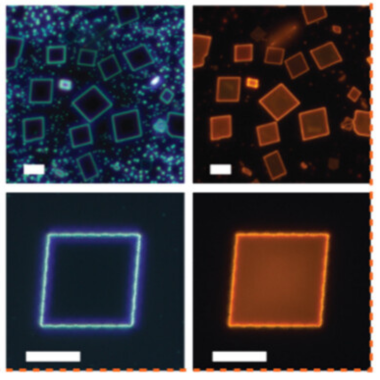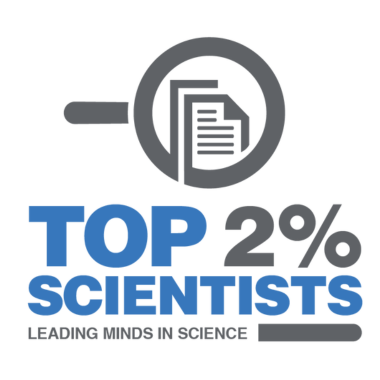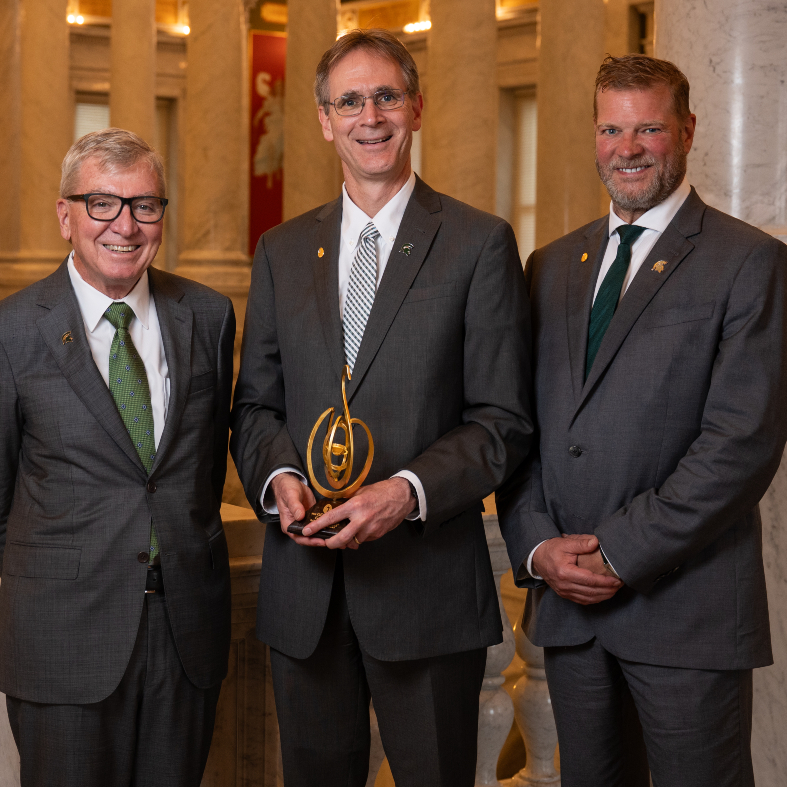Women in Chemistry host trio of equity-in-science events
This past semester, members of our department and the wider university community had the unique opportunity to participate in a one-of-a-kind lineup of events meant to shine a light on diversity, equity, and inclusion in the sciences.
Sponsored by MSU’s chapter of ACS Women in Chemistry (WiC), these events — a film screening, a “global breakfast,” and a visit from a leading gender equity lecturer and chemist — created dynamic, supportive spaces to explore issues of gender equity in STEM.
We asked two members of our department to share their thoughts on the power and purpose of these community experiences, and the ways they fostered new dialogue among colleagues and friends — Elizabeth Pugliese, a doctoral student in the lab of Professor Selvan Demir, and Dr. Elizabeth McGaw, Analytical and Physical Chemistry Lab coordinator and lecturer.
Elizabeth Pugliese
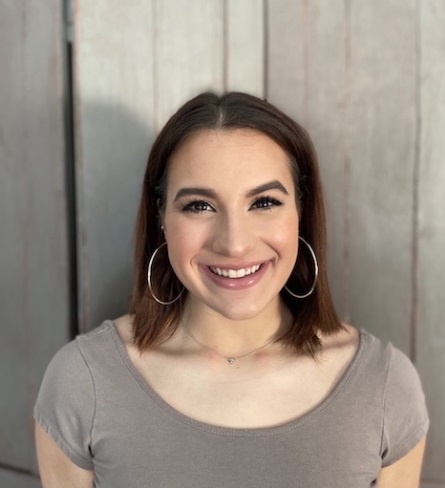
This spring semester WiC planned and sponsored a series of events aimed at advancing diversity, equity, and inclusion within our community. These initiatives included the screening of Picture a Scientist, participation in the International Union of Pure and Applied Chemistry, or IUPAC, Global Women’s Breakfast, and hosting world-renowned advocate for equality and bioinorganic chemist, Professor Paul Walton. Though united in their overarching theme, each event left its distinct mark on members of our community.
Starting off the semester strong, WiC collaborated with Professor Alyssa Gaiser to organize a February screening of Picture a Scientist, a documentary shedding light on gender inequality in science. The aim of this event was to spark a broader discussion on this important subject, and we achieved this goal with great success. Following the documentary viewing, we facilitated an open and constructive dialogue among nearly 45 attendees, creating a welcoming space for discussing the film.
Professor Gaiser led this conversation, ensuring a safe space for everyone to share their perspective. Some discussions were challenging to digest due to the prevalence of inequality, sexism, and harassment that individuals have encountered during their time in STEM. However, many attendees were unaware that others had encountered similar challenges, leading them to believe they were alone in their experiences.
Through our open and challenging discussions on gender equity, we cultivated a deeper sense of community within the group, contributing to a more inclusive and supportive environment. We aspire to continue hosting this event annually, shedding light on the historical struggles for gender equality and charting a path forward together.
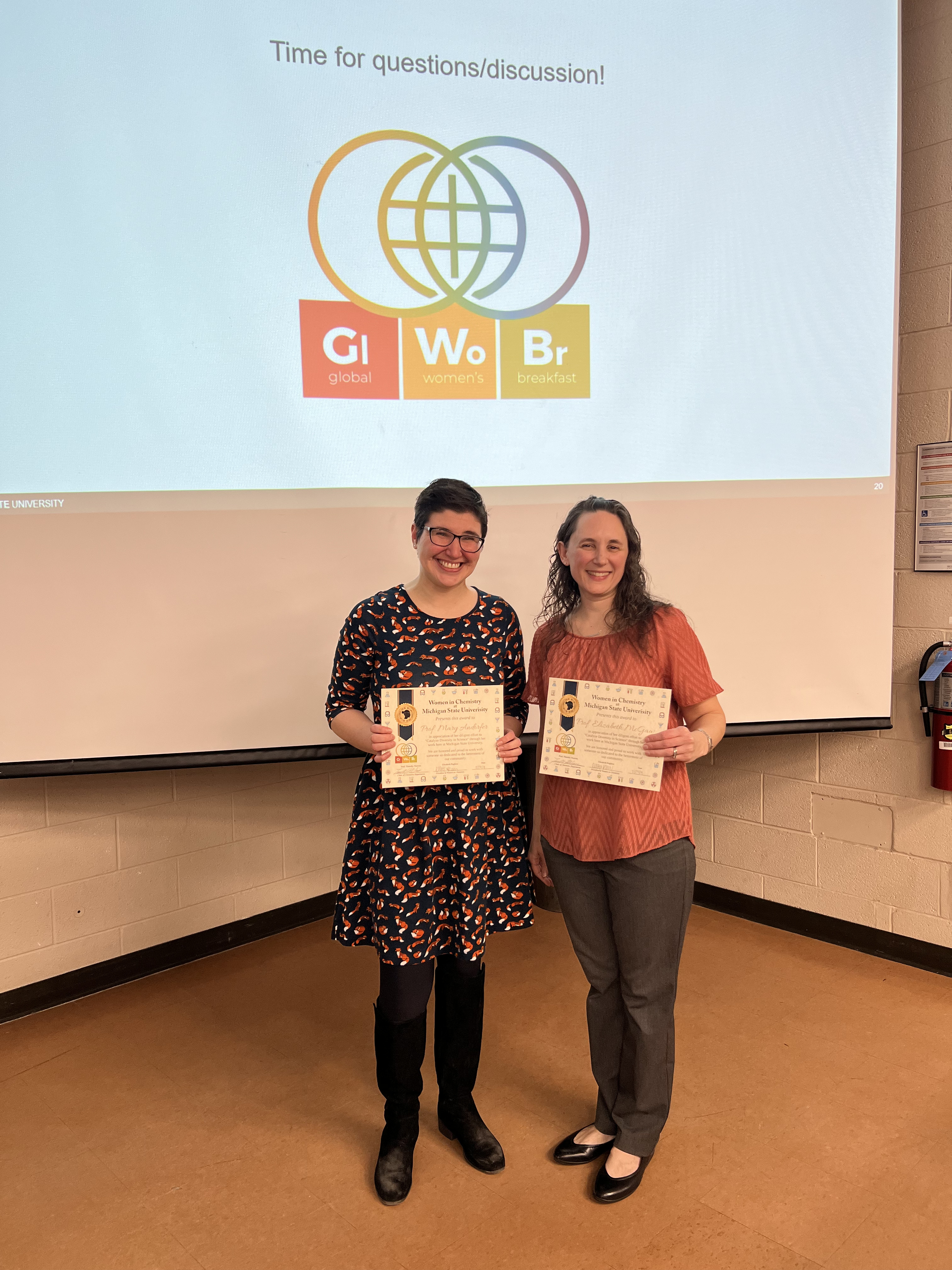
Later that same month, WiC celebrated the IUPAC Global Women’s Breakfast — this year marking our third consecutive hosting of the event. The IUPAC Global Women's breakfast aims to celebrate the accomplishments of women in science, with this year’s theme being “Catalyzing Diversity in Science.” Individuals from diverse backgrounds come together to celebrate and champion the pivotal contributions of women in the field of chemistry. This inspiring event serves as a platform for sharing experiences, building meaningful connections, and fostering a supportive community dedicated to battling gender inequality in science.
This year, Professor Mary Andorfer and Dr. Elizabeth McGaw delivered insightful talks, each sharing their perspectives on catalyzing diversity in science. Though their presentations were distinct, they were united in theme, weaving together the sharing of various resources related to DEI in STEM and beyond. Students engaged with each faculty member after their respective talks, posing questions and starting discussions that further enriched the event. The gathering embodied the spirit of collaboration and empowerment, sparking conversations that propel us toward a more inclusive and equitable future for all scientists.
Then, in March, Professor Paul Walton of the University of York, a prominent advocate for equality in science on the global stage, visited our department, delivering an inspirational talk titled Gender Equity in Academia. He profoundly engaged our entire department, spanning faculty, staff, postdocs, and students.
What set Professor Walton’s visit apart was his genuine commitment to understanding the unique challenges faced by each group he interacted with. He did not just listen, he actively sought solutions, offering tangible strategies to combat gender inequality and foster a more inclusive culture within our department.
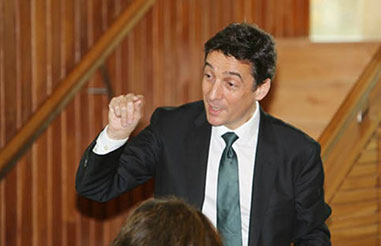
During his presentation, Professor Walton illuminated the systemic barriers hindering the progression of women in academia, which contrasts to their male counterparts. Supported by compelling data, he underscored the stark reality of gender inequality, while simultaneously acknowledging the fact that this can be met with resistance. This resistance manifests itself in several forms, oftentimes from those who benefit from the status quo or fear change. It takes shape in dismissive attitudes that minimize the severity of the problem, labeling it as ‘not a problem’ or ‘only a woman’s problem’. Furthermore, some might argue that efforts to address gender inequality have ‘gone too far’. This resistance not only perpetuates the existing issue, but also reinforces the barrier to meaningful change.
The candid dialogue that continued throughout Professor Walton’s visit extended beyond our department to others within the MSU community. In the wake of his lecture and the community response, our group has been energized to sustain the momentum of the vital discussions that were had. We are actively planning a series of events and initiatives aimed at deepening our understanding of gender equity and implementing concrete measures to effect lasting change. With his guidance, in part, as our inspiration, we are committed to fostering an environment where all individuals, regardless of gender, can thrive and succeed in the sciences.
Dr. Elizabeth McGaw
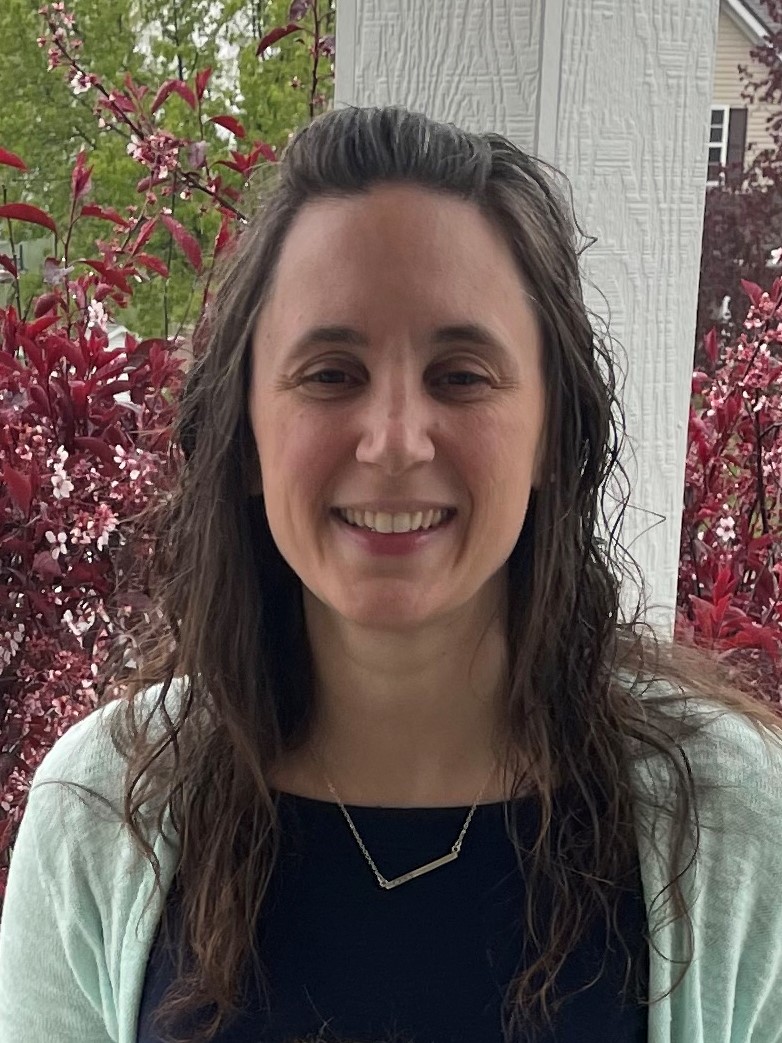
I was honored to be asked to be a presenter at the IUPAC Global Women's breakfast, having been invited by WiC who sponsored the event.
My talk was centered around my growth in the area of diversity, equity, and inclusion, and areas where I feel like I can have a positive impact. While I am not an expert in DEI matters, it is something that I am striving to learn more about and to constantly make myself better in.
I discussed the importance of recognizing your own perspective and cognitive biases, and how our own background and lived experience impacts how we see the world. I also talked about how important it is to expand your viewpoint to understand more about other's lived experiences, and that this can be done by reading books, watching films such as Picture a Scientist, and taking advantage of professional development opportunities.
MSU has many in-person and webinar opportunities, including a Cultural Competency course through the NatSci DEI Office.
I also recommended that we be brave and use our privilege to help move others forward. There are many different dimensions to privilege including gender, race, economic status, and job title to name a few. If there are areas in which you are privileged, you can leverage this to benefit others.
Often in stories of women in science, such as Nancy Hopkins who’s featured in Picture a Scientist, I noticed many found allies in male scientists and that these allies made a difference. I want others to learn to be an ally and advocate for equity.
I concluded my talk by discussing how I can use my status as an instructor to make my classroom a more inclusive place. Because my job title gives me privilege in that space, I can use it to make things better. Some examples are to promote a growth mindset, to challenge students’ self-perception of their abilities, to encourage and mentor students to do difficult things, and to use teaching practices such as active learning strategies and smaller stakes assessments rather than a single final exam that have been shown to be more equitable teaching practices.
Events like the Global Women's Breakfast, DEI speakers such as Prof. Walton, and screenings of Picture a Scientist are great ways to begin a conversation with our community about their experiences. These serve to broaden perspectives and to start to talk about solutions, and help build supportive communities.
